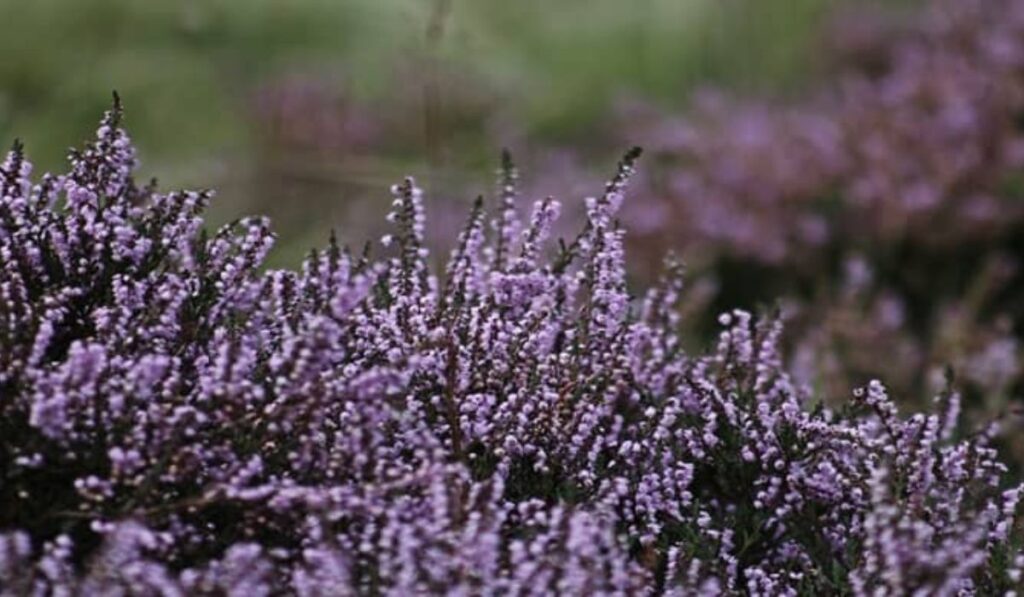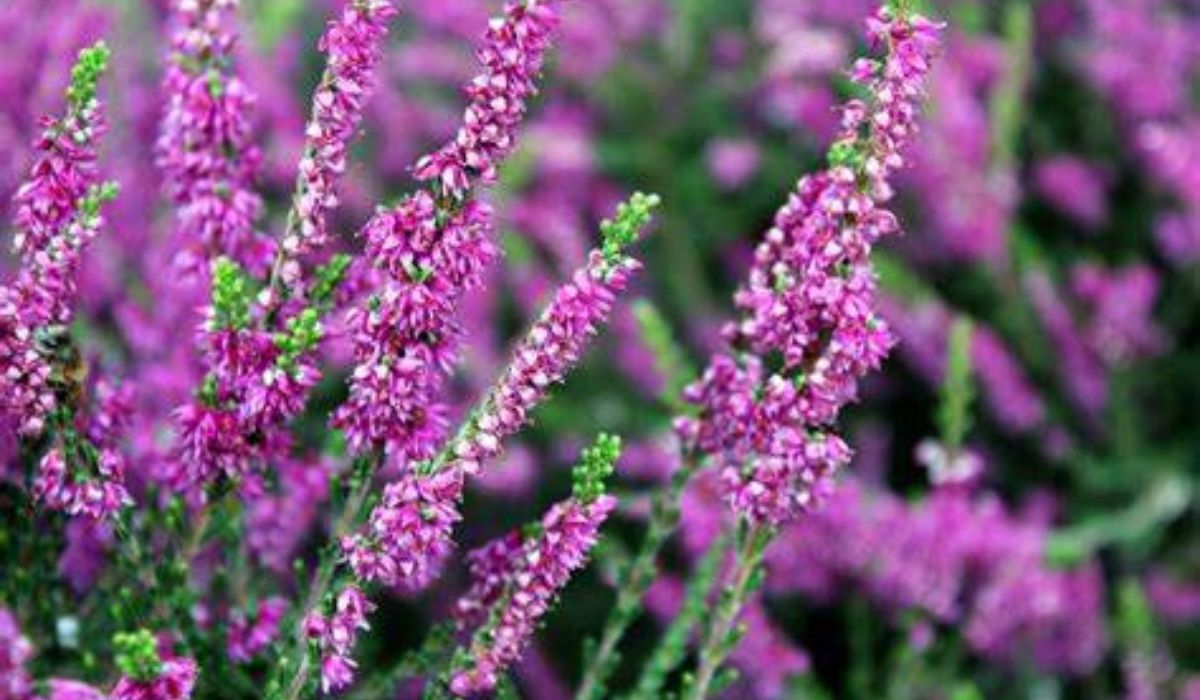Heather in the Bible is a fascinating aspect of the scriptures that adds depth and layers of meaning to the text.
Throughout the Bible, various objects, animals, plants, and even numbers are imbued with symbolic significance that serves to convey powerful messages and teachings.
Heather, though a humble plant, carries its own weight in biblical symbolism, offering profound insights into faith, resilience, and divine care.
In this article, we will uncover the hidden meanings and symbolism of heather in the Bible.
From its association with humility to its role as a reminder of God’s provision, we’ll explore how this delicate yet resilient plant teaches important virtues and lessons within biblical narratives.
Introducing Heather in the Bible
Heather is often overlooked when discussing biblical plants.
Yet, when examined closely, it becomes apparent that this small shrub, scientifically known as Calluna vulgaris, carries powerful symbolic weight.
Although heather is not frequently mentioned by name in the Bible, its qualities humility, resilience, and beauty in harsh conditions are reflected in various scriptural teachings.
The Bible makes use of nature’s imagery to convey deeper meanings. By examining these connections, we will uncover the spiritual truths linked to heather and how it speaks to our relationship with God and others.
Overview of Heather in Biblical Context

Definition and Characteristics of Heather as a Plant
Heather is a small evergreen shrub belonging to the Ericaceae family.
It is characterized by its delicate flowers, which range from shades of pink to purple, and its narrow, needle-like leaves.
Heather thrives in a variety of environments, especially moorlands, rocky terrains, and open fields.
Though it is often overshadowed by more famous biblical plants like the rose or lily, heather’s humble beauty and resilience offer significant lessons.
The plant’s ability to flourish in poor, rocky soil symbolizes how spiritual growth can occur even in less-than-ideal circumstances.
Mention of Heather’s Natural Habitat and Prevalence in Biblical Regions
Heather is native to regions with cool, temperate climates, such as the highlands of Scotland, parts of Ireland, and the Mediterranean.
Its presence in biblical lands like the hills and valleys of ancient Israel would have made an impression on those who lived there.
Heather’s resilience in tough environments mirrors many biblical themes of survival, divine care, and providence.
In areas where heather thrived, its appearance would have been seen as both a wonder of nature and a symbol of God’s sustaining power.
It also plays a role in pollination, attracting bees with its nectar-rich blossoms an important element in the agricultural economy and a reminder of productivity and abundance.
Symbolism and Meaning of Heather in the Bible

The Language of Nature: Symbolism in Biblical Texts
Biblical symbolism offers us a way to understand spiritual truths through nature.
From trees like the cedar to flowers like the lily, plants often carry hidden meanings that illustrate deeper principles.
Heather, though not frequently mentioned, is no exception. By exploring how plants are used symbolically in the Bible, we can appreciate how heather embodies virtues such as humility, modesty, and trust in God’s care.
The Hidden Allusions: Instances of Heather in the Bible
While heather may not be explicitly named in the Bible, its qualities are reflected in several passages.
For example, Jesus’ teachings about flowers and the natural world in the Gospels often contain subtle references to heather’s symbolism.
Matthew 6:28-30 – A Lesson in Divine Provision
In this passage, Jesus speaks of the wildflowers of the field and how God clothes them in beauty.
“Consider the lilies of the field,” He says, “they neither toil nor spin, yet I tell you, even Solomon in all his glory was not arrayed like one of these.”
While lilies are often mentioned in this context, some scholars suggest that Jesus may have been referencing heather or similar wildflowers, given their beauty and humble presence.
This passage highlights God’s provision, reinforcing that God takes care of even the smallest and most delicate parts of creation like heather and will provide for His people in the same way.
Luke 12:27-28 – The Care of God for His Creation
In this passage, Jesus encourages His followers not to worry, asking them to look at how the lilies grow without effort.
Scholars believe that the lilies in this passage could also symbolize heather, known for its delicate blooms that appear in abundance without human intervention.
The message is clear: just as God provides for the beauty of these humble flowers, He will care for His people, even in difficult circumstances.
Heather’s Symbolism as a Sign of Humility and Modesty
The Humble Beauty of Heather
One of the key themes associated with heather in the Bible is humility.
This humble plant, which grows in modest clusters and in the harshest of conditions, reflects the beauty of humility and simplicity. Unlike other grander flowers, heather does not seek attention but thrives in obscurity.
In Matthew 6:28-29, when Jesus speaks about flowers that neither toil nor spin, He may be alluding to heather.
It does not strive for grandeur but exists in its own quiet beauty, much like the humble virtues of modesty and humility that are highly praised in the Bible.
Passages Highlighting Humility and Modesty
While heather is not directly mentioned in many passages, the Bible frequently praises humility. For example:
- Proverbs 15:33 “The fear of the Lord teaches wisdom; humility precedes honor.”
- Micah 6:8 “He has shown you, O mortal, what is good. And what does the Lord require of you? To act justly and to love mercy and to walk humbly with your God.”
These verses emphasize the virtue of humility, echoing the subtle beauty of heather. The plant, with its delicate blooms and unassuming growth, is a powerful visual metaphor for the kind of humility that leads to honor in God’s eyes.
Aligning Heather’s Characteristics with Humility and Modesty
Heather’s characteristics its low-growing, modest nature and its ability to thrive in poor conditions perfectly align with the biblical principles of humility and modesty.
Like heather, believers are encouraged to stay grounded and unpretentious. True beauty, as seen in heather, comes not from external showiness but from simplicity and faithfulness.
The symbolism of heather as a humble plant teaches us that spiritual beauty is found in our ability to remain humble and modest before God.
Heather Symbolism as a Reminder of God’s Provision and Care

The Bountiful Parallels between Heather and God’s Provision
In the Bible, God’s provision is a recurring theme, especially when it comes to plants.
Heather’s ability to grow and flourish in harsh, rocky soils mirrors the ways in which God provides for His people, even in challenging times.
Just as heather survives in environments where other plants struggle, God meets our needs when life feels barren and difficult.
Illustrative Passages Highlighting Heather’s Symbolic Connection
The Bible provides several passages that illustrate God’s provision, and heather’s symbolism aligns perfectly with these teachings.
In Matthew 6:28-30, Jesus speaks of how God cares for the flowers of the field, suggesting that if God can clothe the grass with splendor, He will certainly provide for His people.
Another passage, Isaiah 41:19-20, highlights God’s promise to provide for His people, even in wilderness conditions.
Just as God promised to place trees like cedar and acacia in the wilderness, heather too thrives in harsh environments as a symbol of God’s unwavering care.
Thriving in Harsh Conditions: A Testament to God’s Care
Heather’s resilience in tough conditions serves as a reminder that God’s care is steadfast, even when we face adversity.
Just as heather blooms in rocky, inhospitable soil, God provides the spiritual sustenance we need to thrive amid life’s challenges.
Frequently Asked Questions
Heather Name Meaning Bible
Heather is not explicitly mentioned by name in the Bible, but its symbolic presence can be inferred through biblical references to plants with similar characteristics.
Heather in the Bible
While heather is not directly referenced in the Bible, its symbolism can be interpreted through passages about humility, God’s provision, and resilience in nature.
Is Heather in the Bible?
Although heather is not mentioned explicitly, its symbolic meaning aligns with biblical themes of humility, modesty, and divine care.
What Does Heather Mean in the Bible?
In the Bible, heather represents qualities such as humility, modesty, resilience, and God’s care for His creation, despite being a subtle presence in the text.
Spiritual Meaning of the Name Heather
The spiritual meaning of the name Heather suggests humility, modesty, and resilience, reflecting the plant’s quiet beauty and ability to thrive in difficult conditions.
Conclusion
In exploring the symbolism of heather in the Bible, we uncover profound truths about humility, modesty, and divine provision.
Heather, though a humble and often overlooked plant, carries significant meaning in its quiet strength and ability to thrive in adversity.
It reminds us that, like heather, we can find spiritual beauty in simplicity and rely on God’s provision, even in our most difficult times.
Key Terms:
- Biblical symbolism
- Humility and modesty as virtues
- Divine provision
- Spiritual growth
- Nature symbolism
Semantic Entities:
- Heather (Calluna vulgaris)
- Jesus
- Matthew 6:28-30
- Luke 12:27-28
- Proverbs 15:33
- Micah 6:8
- Isaiah 41:19-20











